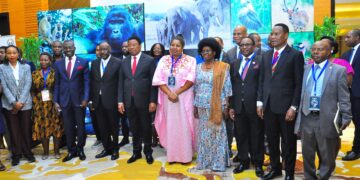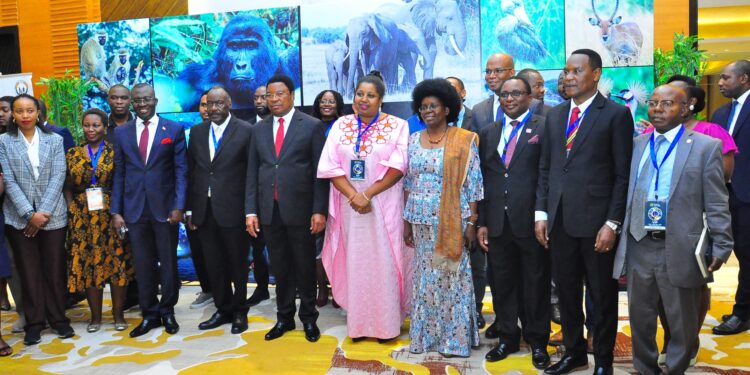Ms Sarah Kagingo, Vice Chairperson of the Private Sector Foundation Uganda (PSFU), has thanked the governments of Uganda and Tanzania for their support in integrating and growing markets, which benefits businesses of all sizes.
She was on Thursday addressing the Uganda-Tanzania Business Forum 2024 on behalf of the Ugandan business delegation at Johari Rotana Hotel Dar-es-Salaam, Tanzania.
She highlighted Uganda’s efforts to leverage the African Continental Free Trade Area, aiming to work closely with Tanzania-n counterparts to scale trade.
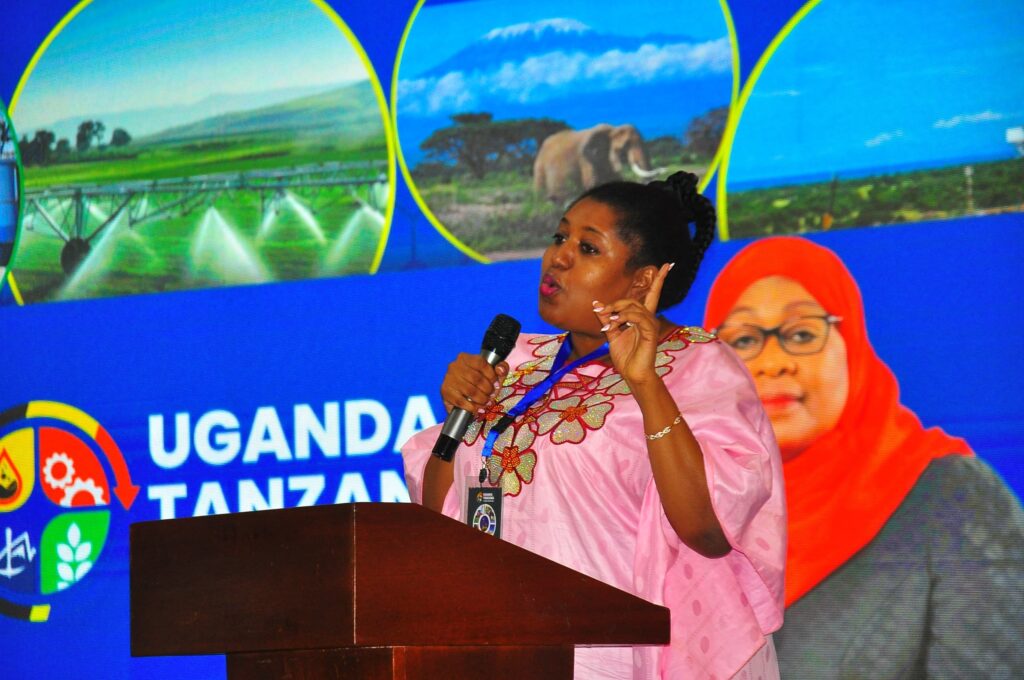
“PSFU is readying businesses to penetrate the African Continental Free Trade Area (AFCfTA) and we closely collaborate with TPSF in handholding businesses to grow.”
She went on: “Noteworthy, our governments are seized with facilitating business growth, implementing policies which drive industrialisation and conversion of our indigenous market’s mindset toward made in Uganda and Made in Tanzania products. The trend we see where the mix of goods traded comprise primary products in agriculture and minerals and manufactured products is good news for our countries.”
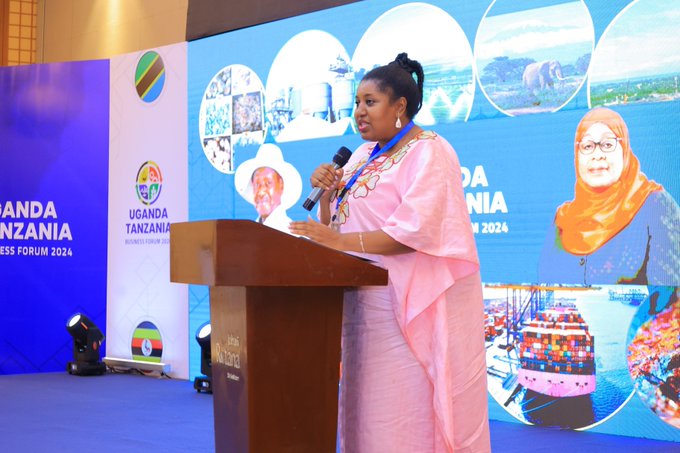
Kagingo noted the positive shift from low-value, unprocessed products to high-value industrial finished products, signalling a promising future of industrialization for both nations.
She further highlighted the strong cultural and commercial ties between Uganda and Tanzania, noting that their commercial value reached $1 billion in 2022.
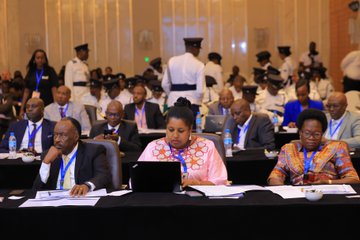
“Trade between our two countries has been growing significantly, reaching a commercial value of US1Bn in 2022. Between 2019 and 2023, we registered growth in exports to each other’s countries of about 15%. While this is commendable, it is just but a fraction of the potential going by the trade volume for instance between Uganda and China.”
According to her, the East African Crude Oil Pipeline (EACOP), a joint investment by Uganda, Tanzania and their partners, is a fantastic win-win project that enhances regional connectivity and economic growth.
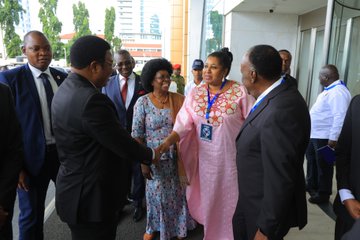
She thanked the Uganda High Commission Dar-es-Salaam led by Amb. Col. (Rtd.) Fred Mwesigye, and the Tanzania High Commission in Uganda represented by H.E. Maj. Gen. Paul Kisesa Simuli, for their efforts in organizing the 2nd Uganda-Tanzania Business Forum and focusing on key sectors like mining, energy, commerce, and logistics.
“Key sectors such as agriculture, minerals, and manufactured goods are driving economic opportunities for many Ugandans and Tanzania nationals. She also pointed out the increasing capital flows and investments, reflecting confidence in the two economies,” she said.
“These sectors hold immense potential for transforming the economies into industrial powerhouses with improved living standards.”

She expressed appreciation for the successful partnership during the 9th International Oil and Gas Convention in Kampala and looked forward to continued government-to-government and business-to-business engagements.
“The prosperity of the peoples of our countries is contingent on value addition to products, to integration of our regional markets and to penetration of international markets.”
“We look forward to business-to-business engagements, joint ventures, business-to-government engagements, the resolving of all Non-Tariff Barriers to trade as cited by PSFU and TPSF, and to the full implementation of EAC protocols to scale trade and investment.”
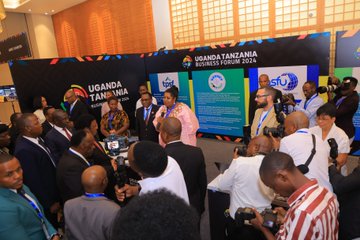
Tanzania commits to favourable investment climate for Ugandans
On his part, Mr. Raphael Maganga, CEO of the Tanzania Private Sector Foundation, highlighted that Uganda and Tanzania traded approximately $400 million last year, with Tanzania exporting $192 million in goods.
He emphasized Tanzania’s significant government-led reforms, which have created one of the most conducive business environments in the region. “The Tanzania Investment Center’s incentives and public-private partnership reforms signal Tanzania’s readiness for investment,” he noted. Maganga addressed issues hindering trade, such as non-tariff barriers costing an estimated $16 billion in the EAC, high trade costs, and the need for improvements like the multipolar one-stop border post and the Port of Dar es Salaam.
He stressed the forum’s relevance amid global economic challenges following the pandemic and ongoing geopolitical tensions.
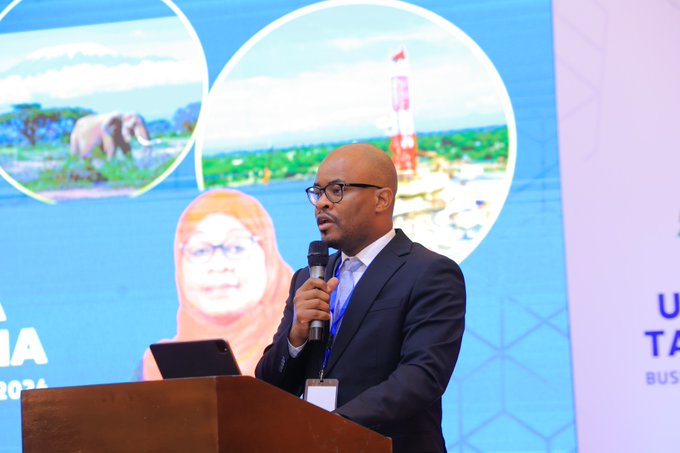
“By leveraging their comparative advantages, Tanzania and Uganda are well-positioned to achieve shared goals of sustainable development and inclusive growth,” he remarked.
“The forum serves as a testament to both countries’ dedication to promoting private sector development and economic advancement for their citizens,” he stated, adding:
“It offers a platform for both private sectors (PSFU and TPSF) to explore investment opportunities, establish business connections, and create mutually beneficial partnerships between the two fraternal nations.”
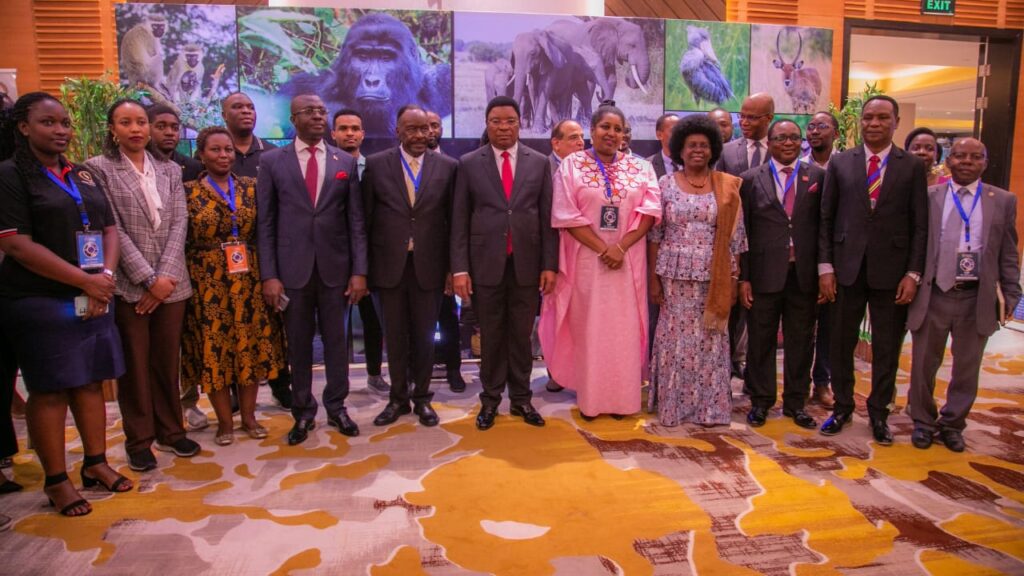
Mr Daudi Riganda, Investment Promotion Manager at Tanzania Investment Centre, highlighted TIC’s role as a pivotal one-stop facilitation centre for investors, providing support with permits, approvals, and licenses through representatives from 14 different government agencies.
Riganda underscored Tanzania’s attractiveness as an investment destination, citing its peace, political and economic stability, abundant natural resources, developed infrastructure, and strategic market access.
He categorized investors into three groups: normal investors, strategic investors, and special strategic investors.
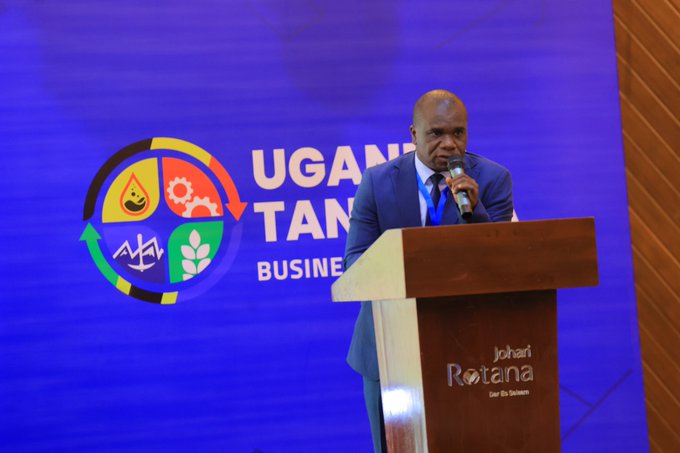
“For strategic investors, the minimum investment requirement is $50 million, while for special strategic investors, it is $300 million. These categories offer additional benefits and opportunities for direct negotiations with the government,” he said.
He detailed the incentives available to investors, including fiscal incentives like zero import duty, deferred VAT, and significant reductions on import duties for specified goods.
“Non-fiscal incentives include benefits for all investment projects and allowances for bringing in expatriates, with a minimum allowance for 10 expatriates. Tanzania is committed to creating a favourable investment environment for Ugandans through strategic facilitation and robust incentives,” he remarked.

The forum was attended by Rt. Hon. Kassim Majaliwa; Prime Minister United Republic of Tanzania (URT), Hon. January Makamba; Minister of Foreign Affairs & EAC Cooperation, Tanzania, Hon. John Mulimba, Minister of State for Foreign Affairs in charge of regional cooperation, Uganda, Hon. Monica Musenero; Minister for Science and Technology, H.E Maj General Paul Kisesa Simuli, High Commissioner of URT to Uganda, H.E Col. (Rtd) Fred Mwesigye High Commissioner of Uganda to URT, Ms. Angelia Ngalula, Chairperson Tanzania Private Sector Foundation, Industry Captains and Business Executives and Heads of Government agencies.
